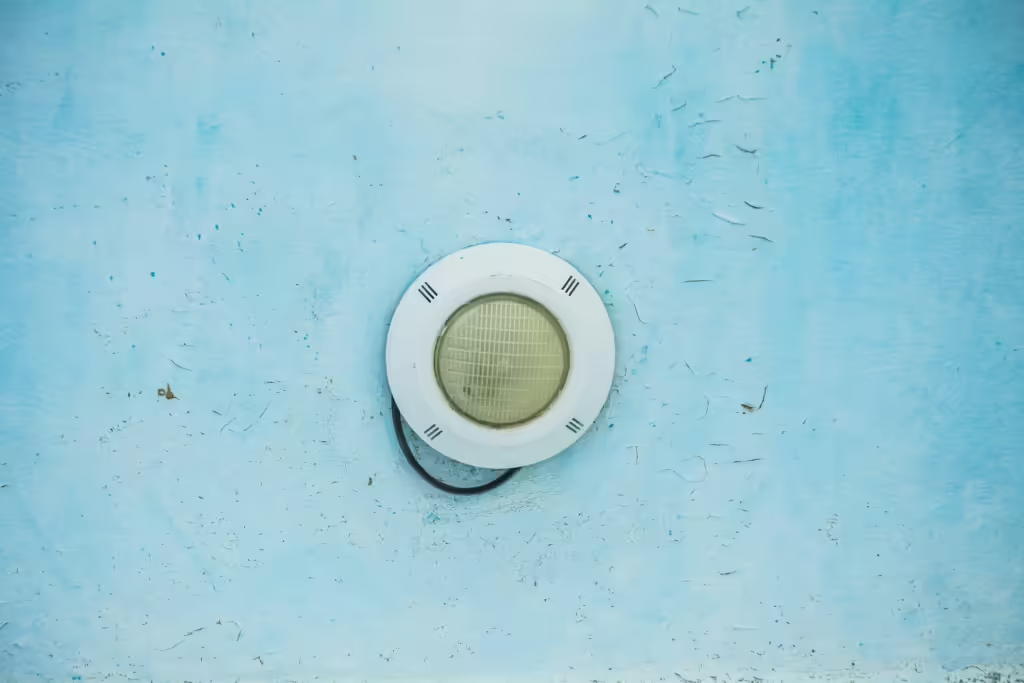Saltwater pools are celebrated for their comfort, reduced chemical usage, and relatively low maintenance compared to traditional chlorine pools. However, even saltwater systems require regular care and occasional repairs to operate efficiently and keep the water clean and safe.
If you’re looking for “saltwater pool repair near me,” this guide covers everything from how these systems work to common issues and tips for preventive maintenance, ensuring your pool stays in excellent condition year-round.
How Do Saltwater Pools Work?
The Salt Chlorination Process
Saltwater pools don’t entirely eliminate chlorine; instead, they generate it using a salt chlorinator. This system uses electrolysis to convert dissolved salt into chlorine, which sanitizes the water. The process ensures consistent chlorine levels while avoiding the harsh odor and feel of traditional chlorine pools.
Key Components of a Saltwater Pool System
- Salt Cell: The core of the chlorination process, responsible for generating chlorine from salt.
- Control Panel: Allows you to adjust settings and monitor chlorine levels.
- Pump: Circulates water through the salt cell and filter, ensuring even chlorination and cleanliness.
- Filter: Removes debris and particles to keep the water clear and prevent blockages.
Each of these components must function properly to maintain a safe and clean swimming environment.
Common Problems in Saltwater Pools
Even with their convenience, saltwater pools can face unique challenges. Here’s how to recognize and address common issues:
1. Low Chlorine Levels
- Causes:
- Dirty salt cell with calcium buildup
- Incorrect salt levels
- Malfunctioning or aging salt cell
- Solution: Clean the salt cell, adjust salt levels, and replace worn components if necessary.
2. Calcium Scaling on the Salt Cell
- Why It Happens: Hard water and imbalanced pH levels promote scaling.
- Solution: Soak the salt cell in a cleaning solution to dissolve deposits and restore efficiency.
3. Corrosion of Metal Components
- Causes: Saltwater can corrode ladders, heaters, and light fixtures, especially with improper water chemistry.
- Prevention Tips:
- Use corrosion-resistant materials.
- Regularly balance pH, alkalinity, and calcium hardness.
- Install a sacrificial anode to minimize corrosion.
4. Error Messages on the Control Panel
Modern saltwater systems display error codes for issues like low salt levels, cell warnings, or flow errors. Refer to your system’s manual for specific troubleshooting steps.
5. Cloudy Water
- Causes: Chemical imbalances, clogged filters, or poor circulation.
- Solution: Test and adjust water chemistry, clean filters, and ensure proper circulation.
Troubleshooting and Repair Tips
For minor issues, try these troubleshooting steps:
- Clean the Salt Cell:
- Turn off the system and remove the cell.
- Rinse it with a garden hose to remove debris.
- Soak it in a cleaning solution to dissolve scaling.
- Check and Reset the Control Panel:
- Address error codes as indicated in the manual.
- Reset the system if minor issues persist.
- Replace Corroded or Worn Parts:
- Use saltwater-resistant replacements for damaged components.
- Maintain Proper Salt Levels:
- Test salt levels regularly (ideal range: 2,500–4,000 ppm).
- Add salt gradually, allowing it to dissolve before retesting.
Preventive Maintenance for Saltwater Pools
Regular maintenance helps avoid costly repairs and extends the life of your pool system:
- Inspect and Clean the Salt Cell: Check for scaling every three months and clean as needed.
- Balance Water Chemistry: Test weekly to maintain proper pH, alkalinity, and calcium hardness. Use a stabilizer (cyanuric acid) to protect chlorine from UV degradation.
- Prevent Corrosion:
- Install a sacrificial anode.
- Apply protective coatings to vulnerable components.
- Schedule Annual Professional Inspections: A technician can identify potential problems and ensure all components function efficiently.
When to Call a Professional
Certain issues require the expertise of a trained technician:
- Complex Malfunctions: Problems like internal salt cell damage or control panel errors may need advanced diagnosis and repair.
- Component Replacement: Professionals can replace worn-out salt cells or control panels and recalibrate your system.
- Electrical Repairs: Electrical issues should always be handled by a licensed technician for safety and compliance.
Final Thoughts
Saltwater pools provide a luxurious swimming experience with reduced chemical usage, but they still require regular care to perform at their best. By addressing common issues promptly and maintaining proper water chemistry, you can keep your pool clean, safe, and efficient.
If you’re experiencing issues or want to ensure your system stays in top shape, contact Cabana Pools for professional saltwater pool repair near me. Our expert technicians offer reliable repairs, pool maintenance, and advice to keep your pool running smoothly year-round. Call us today to schedule a service!
FAQs About Saltwater Pool Maintenance and Repair
1. How often should I clean my salt cell?
It’s recommended to inspect and clean the salt cell every three months. If you notice calcium buildup or reduced chlorine production, clean it sooner to maintain efficiency.
2. What are common issues in saltwater pools?
Common problems include low chlorine levels, calcium scaling on the salt cell, corrosion of metal components, error messages on the control panel, and cloudy water caused by chemical imbalances or poor filtration.
3. How do I maintain proper salt levels in my pool?
Test salt levels regularly using a test kit or strips. The ideal range is 2,500–4,000 ppm. Add salt gradually and allow it to dissolve before retesting to ensure accurate levels.
4. How can I prevent corrosion in a saltwater pool?
Prevent corrosion by using corrosion-resistant materials, maintaining balanced water chemistry, installing a sacrificial anode, and applying protective coatings to metal components like ladders and heaters.
5. When should I call a professional for saltwater pool repair?
Call a professional if troubleshooting steps don’t resolve issues, if you need to replace a damaged salt cell or control panel, or for electrical repairs and complex system malfunctions. Annual professional inspections are also recommended to catch potential issues early.



